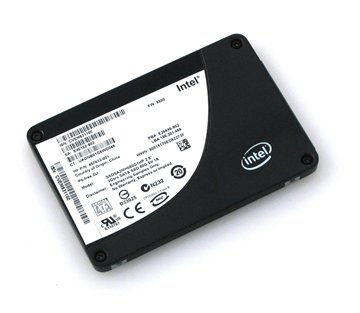Intel SSDs fast but lack endurance
Posted on Feb 19, 2009 by
Paul White
In past blogs I have talked about the reason I decided to go with my
Dual
SAS drives instead of jumping to the newer
SSD drives.The guys
over at
PC Perspective have published an article recently that
basically backed up my theories. If you want to use your computer long
term you are better off staying away from
SSD drives for now.
SSD drives for those of you who don't understand then, is essentially a bunch of memory chips ( similar to what you would find inside of compact
Flash Memory cards ). These chips have been optimized for maximum performance. Since the device has no moving parts it is extremely fast. Normal
hard drives suffer from Latency. The sheer fact that it has to move a little needle back and forth to the different sectors cost you milliseconds in performance per each file.
SSD drives have almost no latency due to their design. The other benefit from no latency is the drive will not suffer performance losses due to defragmentation. However unlike
Hard drives which can last for decades.
SSD drives memory wears out. If you are planning on running a highly transactional DB server,
SSD drives would be fast, though they woud eventually wear out.
Once of the featuers newer
SSD drives have is an algorithm that is supposed to spread out the wear accross all memory sectors. Essentially ensuring that no one sector will get too much activity. This is great as it helps to increase the life of the drives, but it turns out that over long term heavy use this algorithm will acutally cause the drives to slow down as the device gets full.
As a result the guys at PC Perspective have stated that if you are an average use you will be fine, but power users, may want to rethink SSDs for now.
Ever since I got my Dual
SAS drives I have been very happy with my system's performance. I just wish the ASUS board would support more than 2
SAS drives.
Discussion
No Comments have been submitted
 WhiteSites Blog
WhiteSites Blog
 In past blogs I have talked about the reason I decided to go with my
Dual SAS drives instead of jumping to the newer SSD drives.The guys
over at PC Perspective have published an article recently that
basically backed up my theories. If you want to use your computer long
term you are better off staying away from SSD drives for now.
In past blogs I have talked about the reason I decided to go with my
Dual SAS drives instead of jumping to the newer SSD drives.The guys
over at PC Perspective have published an article recently that
basically backed up my theories. If you want to use your computer long
term you are better off staying away from SSD drives for now.